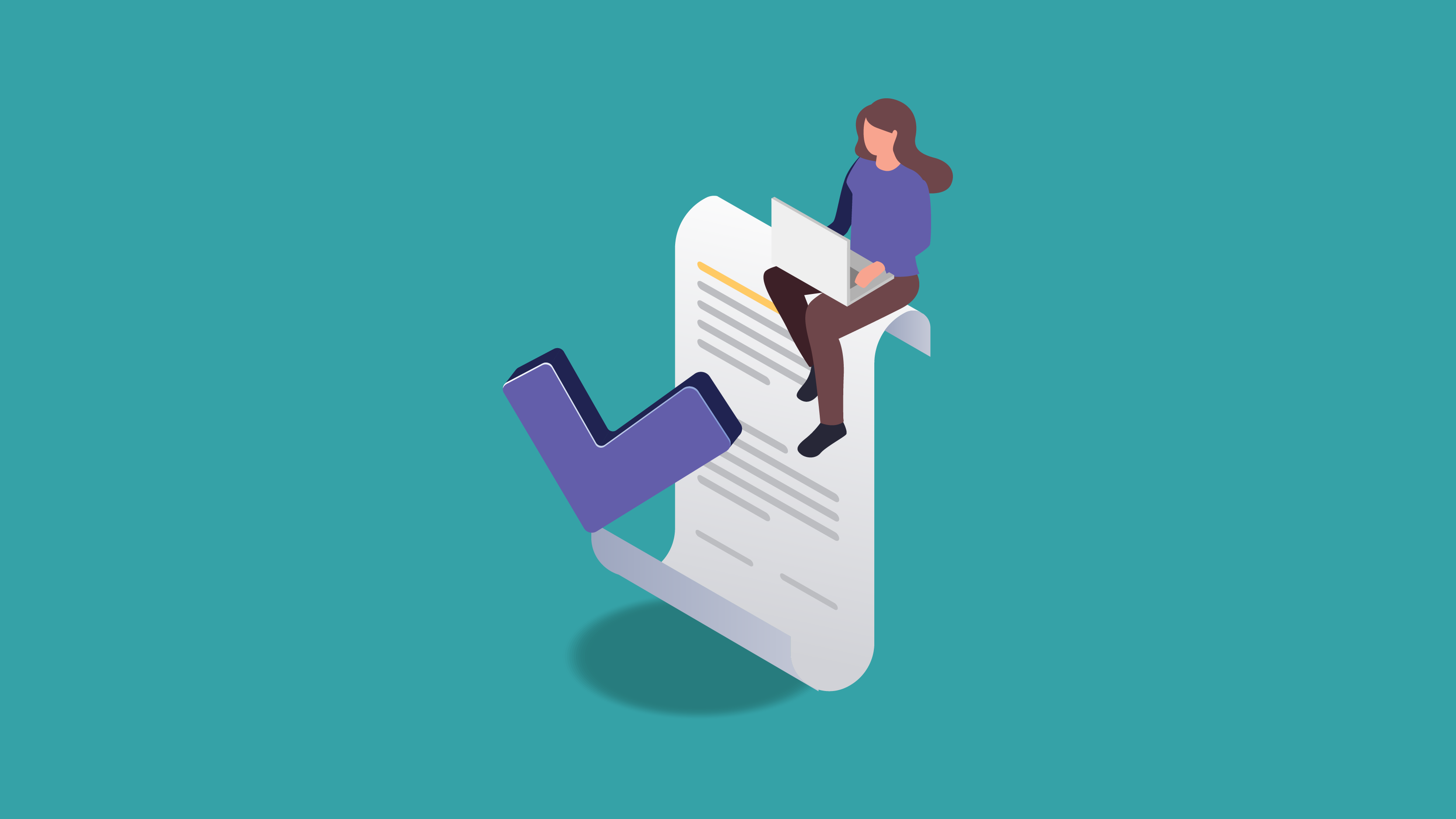Welcome to mselect's career services guide, "How to find a job you really love." This guide takes a holistic approach to understanding what you really want in your career and how to get it!
When you read this guide, you'll realise why it stands out. And that's because it's not just another "how-to" guide but a tool that empowers you to take control of your job search. We've structured it to address the challenges you'll face, guiding you through each phase and ultimately enhancing your chances of success.
How to find a job you love: Interesting job search statistics
Did you know that it typically takes three to six months to find a new job, with as many as 10 to 20 applications before you get an interview? With millions of jobs posted online yearly and millions looking for work, it can feel like jobs are more challenging to get, but with the right help, you can find those exciting opportunities you've been looking for.
That's where we come in with our comprehensive guide and career services. At mselect, we are here to support and guide you, helping you be the most successful candidate you can be.
Let's start at the top - Preparing for your job search strategy.

Phase 1 - Preparing for job search (a Career Services guide)
The first phase of any job search starts with a crucial step: determining what you want from your next job. This self-assessment is critical to planning a successful approach and can inspire hope and motivation for your career growth.
So how do you do that? How do you work out exactly what you want from a new job?
Your current job is a valuable starting point in your job search. It's where you can begin to understand what you want from a new job.
Grab a notebook, and let's begin.
Working out where you stand in your current role and creating career goals
We call this your career assessment, and it starts with listing the likes and dislikes of your current job:
● What made you excited to join the industry?
● What was it about the job that interested you?
● What was it about the company that made you want to work there?
● What changed your desire to remain with the company?
● What would you like to do more at your next job?
● And what would you like to do less of?
Don't forget to include what you are looking for in terms of job specifics:
● Location and travel distance
● Commute costs
● Salary and benefits
● Working hours
● Promotion opportunities
● Training and development
● Experience you'd like to gain
Journalling about your current role can help you clarify what your next job might be like. It can also help you create career goals - important to helping you get what you want. Read the linked guide and set some primary goals to start with.

Next, work out which of your skills are an asset for future employers
The next consideration is your skill set. Start a fresh page in your notebook and write down your strongest, weakest and transferable skills.
Need some help? Read these guides:
● How to effectively assess your strengths and weaknesses
● How to identify your transferable skills to find a new job
Once you have completed these two tasks, you can start your job search with a clearer understanding of what you want and what you have to offer. This guide is designed to give you the confidence and clarity you need to succeed - so let's move to phase two.
[Don't skip phase 1 if you haven't had your first job yet; instead, tackle it from the perspective of where your current industry interests lie]

Phase 2 - Job Search (a Career Services guide)
Starting your job search will involve several steps, so take your time and give it your best focus and effort.
Start with your promotional assets
What are promotional assets in your job search? These are anything that will help you show what you can do, like your CV and portfolio, or tools that allow you to show yourself off, like LinkedIn and job sites.
Start with your CV. You will want to create an up-to-date version of an existing or first CV. Here's a guide on exactly how to do that.
Your CV will inform everything you choose to do next. For example, your LinkedIn profile will heavily rely on the information you already created for your CV.
Here's a guide for creating a compelling LinkedIn profile. This will help you in your digital search for work.
Once you have these, it is time to work on your portfolio. Why a portfolio? Showing work examples (or potential examples if you do not have industry or job experience) is essential for some roles. Here's how to create a portfolio that stands out.
The final job search asset is the job sites you connect with. Here are two guides you will need to help you with this:
● How to use job search platforms and tools to find your next job.
● Job Sites: The six steps to establishing a good fit for you.
We also want to give you this guide—How to avoid job scams online—because, at some point, you may need to know how to spot something potentially harmful.
Then, research the industry you want to work in
Once your assets are created, you will want to learn more about the industry you want to work in. Having this information on hand will help you deliver better job applications and interviews. It will also help you establish which companies within that industry you might consider applying to work with.
Here are our tips on conducting your industry research.
Next, you'll need to work on your industry presence
Many industries are online these days. Networking both online and offline will give you an advantage. But how you do that is critical.
Start by building a professional online presence. This is an easier way to enter new industries and a quicker way to start looking for a new job. Consider where and how you want to present yourself: social media profiles, personal websites, blogs, online portfolios, and other platforms. Choose which makes sense, given your understanding of what employers are looking for (and what you can keep up with). For example, if you are a technical engineer, you could build a website with case studies of previous projects or design ideas for future projects. You may also choose to share your work on social media.
Here are some more tips on how to build your online presence.
Learning to network
Networking can be a powerful way to build industry connections, which may help you better understand your industry, collaborate, and even find work. But there's a right and a wrong way to approach it.
Here are our networking tips for more success while looking for a new job
At the end of this phase, you should feel productive. That emotion is important because looking for work can be tricky. A positive outlook will help carry you through - so keep working in a way that makes you feel productive. Not sure how? Keep reading!

Phase 3 - Job applications (a Career Services guide)
Your next phase of job hunting is applying for work. Just as before, there will be several steps. Bear with us because while this phase may feel like it never ends, honestly, if you follow our tips, we will give you pointers on how to get to the interview stage much quicker.
You will have created your CV, LinkedIn profile, and other online assets (website, socials, etc.). Pat yourself on the back because these were significant hurdles you already have out of the way. Most of your competitors won't have done this—you are already ahead of the game.
First, set up your job application tracking system
Before you start sending out job applications, take some time to set up a tracking tool to help you monitor your progress. Here's a guide on how to track job applications successfully.
This tool will be invaluable as your application numbers grow. It will allow you to quickly see where you are with each application and make notes ready for interviews.
Next, make a note of where to search for a new job
Consider:
● Online job search platforms (like ours)
● Newspapers
● Industry magazines
● Recruitment agencies and offices
● Networking
● Friends and family
Being strategic about where you search for work will help you establish new routes to finding your next job.
Then, start applying to a handful of jobs that fit your skill set
The best way to begin your application process is to focus on a few jobs. Select a handful of employers you would like to work for, start researching the company, and find job vacancies. Make your selection. Then, take your time to focus on each job description and adapt your CV to highlight what the employer is looking for.
Remember - Be genuine, but use your experience to answer the job post.
For example, if the job description for a payroll clerk asks for five years of experience in bookkeeping and you have this, ensure it sits first in your CV skills list.
The tip here is to break down the job description into key points and answer these in your CV, cover letter, portfolio and job application.
Example 1
Job description: "mselect is looking for an FM Service Desk Coordinator for an international oil and gas operator in Basrah, Iraq. Candidates must have a minimum of 4 years of relevant experience. Fluency in English and Arabic is a must."
Key points:
● Four years of relevant experience in facilities management and service desk co-ordination
● Fluency in English and Arabic
Example 2
Job description:
"mselect is looking for a Senior Geologist for an international energy client in Basrah, Iraq. Candidates must have a minimum of 10 years of experience in seismic interpretation with at least 3 years of experience in geophysical acquisition in wells. Fluency in English and Arabic is a must.
Context and Environment:
The field Hub Affiliate is tagged as a digital affiliate that will focus on early deployment of digital technologies in the client's portfolio. The field contains four complex oil reservoirs with both carbonate and clastic deposition and having different fluid properties and reservoir pressures
The senior geologist will:
● Work under the direct supervision of the Geology Manager
● Work with geoscientists concerning data Quality Control (QC), data loading, and to maintain databases updated
● Respect Corporate Data Management rules – Confidentiality, Preservation and Security of data"
Key points:
● Ten years of experience in seismic interpretation
● At least three years of experience in geophysical acquisition in wells
● Fluency in English and Arabic
● Understanding of multiple well types and complexities
● Understanding and experience in the deployment of digital technologies
● Understanding and experience with QC databases
● Understanding and experience in data security
Next, ensure your cover letter is primed to help you stand out
Cover letters are a great way to showcase who you are, what you do well and how you are the best choice for an employer. To create a comprehensive cover letter that gets you through the first sift, you must tailor it to the job you are applying for.
Here's a guide on how to write the perfect cover letter every time.

Then, tailor your portfolio for each application
As you have done with your CV and cover letter, tailor your portfolio to the job you are applying for. Doing this shows that you understand what the employer is looking for and that you can satisfy it.
We know that it sounds like a lot of work, but this is what it takes to get an interview successfully. Trust us; we read applications from hundreds of people on our job site daily, and those who don't get the interview miss this trick.
Your portfolio pages will grow as you apply for more jobs, so remember to assess how you curate your book to fit the job. And feel free to mix and match pages rather than create something fresh every time.
This is where your job tracking system can help because you can make notes on which portfolio pages you'd use for each potential interview. Trust us; planning ahead of time takes the stress out of interview preparation!
Next, consider how you can fill the time between applying for jobs by upskilling
As you finish applying for these first set of jobs, take some time to consider what you have learned. We can guarantee that your first point will be that jobs ask for "x, y or z", which you don't have experience in.
Don't worry. That is quite typical, and it is something you can change. This is why continued professional development is essential.
Let's say you are an assistant HR manager and want to become a full-time HR manager—a promotion. Look at job descriptions to see where you have skill gaps. Then, spend time working on those skills so that you can add them to your CV and cover letter.
Here's why continued professional development is beneficial to finding your next job.
An example: Let's say you have just graduated from college, studied business, and decided to work in human resources. A course on human resources and administration may benefit you. All these learnings can go towards writing better future applications. Most candidates don't consider this a possibility, which is the number one reason that holds them back in their career growth.
Phase 4 - Job interviews (a Career Services guide)
You got an interview and are now wondering how to leap this hurdle and get the job. To be successful, you need to prepare.
Here are several guides that we know will help you:
● How to prepare for interviews.
● Avoid these common interview mistakes!
● What to do after your job interview: A step-by-step guide
The importance of maintaining a positive mindset during the interview process
Your mindset is essential for navigating your job search, especially during the interview phase. There will be times when it feels challenging to stay positive. However, staying positive is critical to your success because it affects how you approach job applications, interviews, and networking.
Take a moment to look at everything you have achieved thus far. You have learned a lot about yourself and your skills. You have developed ways to reach out to employers that are a cut above your competitors, and you have learnt to see what's being asked of you in each job description. If you are at this stage, you just need a final push.
Keep positive. Balance finding work with spending time with family and friends. Believe in yourself. Things will change.
Handling job rejection and maintaining persistence in your job search
Job rejection will be a big part of looking for a new job. How you handle that and remain positive is going to be vital.
Here are our tips: Handling job rejection and maintaining persistence in your job search
Remember, your job search process is just that, a process. Going through and learning from it will help you understand how to be more successful each time. Your time will come.
Why am I not getting the job?
If you have been applying for and interviewing for several jobs, several things are potentially happening. These include:
● Being too experienced or not experienced enough - work on your skills and align these with the jobs you apply for
● Your CV needs work - revisit our guide in phase 2
● You may have been unprepared in your interview - revisit our guides in phase 4
● You were not a good fit for their current team - don't worry, you will be a great fit somewhere else
● They chose another (or internal) candidate - again, don't worry, you will find your fit soon
The most important thing is to keep persevering. You will get there.

Phase 5 - Job negotiations (a Career Services guide)
You have a job offer - that's great! Congratulations.
Have you checked all of the terms? Are you happy with the compensation? If it's a fair and reasonable offer, take it—send a written acceptance letter, skip this phase and get ready to start your new job.
If there are a few things you'd like to negotiate, then this is the moment to do that.
It's essential to be sure that negotiation is the right step for you. For example, if the company has accepted that you are underqualified but are willing to give you a chance, then negotiating for better pay may not work. However, if you bring more skills to the company than asked for, then you might be positioned to ask for more compensation. Here's how to negotiate your terms.

Phase 6 - Leaving your old job and starting at your next one (a Career Services guide)
Leaving your old job starts with resigning well. Here's our guide on how to resign professionally with a resignation letter (or email).
Once you have resigned, there will be a period of handover. Do this gracefully and with respect to those you worked with. Leaving with a good reputation will help you in the future, as you may meet many of your colleagues at future jobs.
During this time, you also need to prepare for your next job. How you do this will determine your first day, week, and month.
You want to set the right tone at your new job. That starts with looking the part. Make sure you have a well-presented set of outfits. You will also want to appear professional. Take some time to revisit your company research and learn about their current projects where you can. And finally, revisit the job requirements - Are there any points you need to plan for?
How to find a job you really love (a final note)
If you have followed every phase of this guide, then you are ready to start your new job. We wish you huge congratulations and all the best in the future.
But don't be a stranger. Our job board, courses, and career advice will always be ready when you need us next.
